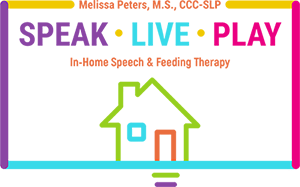Speech and Swallowing Therapy to Help cope with Parkinson’s Disease
What is Parkinson’s disease?
Parkinson’s disease is a progressive nervous system condition whereby the brain becomes damaged over time. It is a progressive and chronic disorder, meaning that the symptoms tend to worsen gradually. At first, the symptoms are mild, barely noticeable; however, over time the disease may affect your ability to perform basic tasks. The condition is characterized by common motor symptoms such as muscle stiffness and movement slowness. overtime other non-motor symptoms start to manifest including sleep problems, depression, anxiety, fatigue, just to mention a few.
Symptoms of Parkinson’s Disease
Just like most of the other nervous system disorders, Parkinson’s disease symptoms vary from one individual to the other. As mentioned, the early signs may go unnoticed. However, as the disease progresses, you may start having symptoms on one side of the body. The symptoms will worsen and affect both sides but usually remain severe on that side. While these symptoms vary from one person to the other, the most common signs and symptoms for Parkinson’s disease are;
- Tremors
This is the most common early signs of PD. Shaking or tremor often begins on your fingers or hand. You may also feel the urge to rub your forefinger and thumb back and forth. Additionally, your hand may start trembling while resting.
- Slowed movement
Gradually, the disease slows your movement. Here you may find yourself taking too much time to perform basic tasks. Another common sign is that your stride becomes short when walking. You may also find it difficult to get out of your chair or start dragging your feet when you begin to walk.
- Impaired balance posture
Parkinson’s disease may also lead to balance problems. At its worst, your posture may also become stooped.
- Rigid muscles
Another common sign is muscle stiffness on various parts of your body. This could lead to painful muscle pull and may limit your range of motion.
- Speech Difficulties
Due to reduced muscle activity, this disease could also lead to a speech disorder. This may make you speak quickly softly, slur, or hesitate before speaking. This makes the speech monotone, making it hard for you to communicate with friends and family.
- Difficulty in swallowing
Individuals suffering from PD may also notice difficulty when chewing, eating, and swallowing. This could be dangerous as it may pose choking risks. Speech and swallowing therapist may assist the patient in improving swallowing, enhancing their quality of life.
- Loss of automatic movement
Parkinson’s disease may also lead to reduced ability to perform unconscious movements. This included things such as smiling, blinking, as well as failing to swing your arms as you walk.
- Difficult in writing
Writing and reading may also become difficult. The letters may appear very small, making it hard for you to read or write even when your reading glasses are on.
Why You Might Experience Speech Impairment and Difficulty Swallowing With Parkinson’s disease
Parkinson’s disease affects the muscles and nerves that control speech. This condition affects your throat, larynx, facial muscle movement, respiratory muscles, tongue, lips, as well as the brain part that controls speech processing and hearing. Just like the manner in which the PD affects the mobility of other parts of your body, it affects the way you speak.
Besides producing the voice, PD may also lead to a masked or “frozen face”, making it hard to communicate the emotions, which goes along with what you are expressing.
This could lead to some of your friends or family misinterpreting it as aloofness or lack of interest. In other cases, you may struggle to find the right words or speak very slowly. On the other hand, this condition may also lead to individuals speeding up their speech, making it sound like shuttering.
Parkinson’s disease can also affect your ability to eat and drink safely. Dysphagia, or difficulty swallowing is a common symptom of Parkinson’s Disease. Difficulty swallowing solid textures, choking during meal times, coughing when eating and drinking are also signs of difficulty swallowing. Swallowing problems are serious as they may pose choking risks and put you at risk of aspiration pneumonia.. It is important to see a medical professional if you or your loved ones are experiencing difficulty swallowing.
If You Have Parkinson’s disease, Here Are Possible Speech Problems You May Experience
PD can affect speech in various ways. Sadly, if you have this condition you may not be aware of your speech problem. The first sign is usually the change in the quality of your voice. This worsens over time and you may find it a problem having a fluid speech with clear and distinct speech sound. At its worse, this condition may reduce your ability to be easily understood. Below are some of the common speech and voice difficulties that you may experience.
- Speaking in monotone (unchanged pitch)
- Softened voice, at very low volume
- Having a strained or hoarse sound quality
- Running out of breath when speaking. This arises when you force yourself to speak and your listener will notice breathiness in your voice
- slurring or stammering as you speak
- A tremor in your voice
- Lack of facial expressions while speaking
Speech problems can make it hard for you to communicate with your family and friends. This could also adversely affect your job, especially when dealing with clients. Additionally, this could limit your social interaction, thus the need to get it addressed as soon as possible.
Speech problems can make it difficult to communicate with family, friends, and physicians. They also can interfere with a job (if you often give presentations, for example) and limit social interactions.
Treatment for These Symptoms
While various medications stimulate the production of dopamine, speech therapy is the main treatment for PD. Various Parkinson’s disease therapists teach the patient helpful exercises and techniques to help improve their volume and clarity of the speech. The therapist will also include memory-building exercises to help individuals with cognitive problems.
Parkinson’s medication may also assist to solve the swallowing problems; however, swallowing therapy remains the top treatment. Therefore, your doctor may refer you to swallowing and speech therapists. These therapists will recommend exercises that help in strengthening the swallowing muscles. They may also recommend behavioral changes such as tucking your chin into your chest when swallowing, not using straws to drink and making smaller bites when eating your food.
Sometimes, swallowing problems may lead to complicated problems such as weight loss especially when the patient cannot take adequate nutrition. In severe cases, the doctor may raise the possibility of using a feeding tube. This may become a blow to the whole family however, it may be the only option to ensure that the patient gets enough calories.
How Can Speech Therapy Help?
If you have speech and swallowing problems related to Parkinson’s Disease, you should see a swallowing and speech therapist. These pathologists have undergone specialized training that helps patients amplify their voices. Generally, speech therapy programs are different in the various stages of Parkinson’s Disease. At the onset, the therapist will teach the patient strategies to help with their voice volume, breathing, speed of speech, clear pronunciation of words, as well as facial expressions.
As Parkinson’s Disease progresses, communication may become difficult. The therapist offers advice on how to cope with the disease. For instance, the professionals may recommend the use of assistive devices such as voice amplifiers or computers. Speech therapy training also includes non-verbal communication skills, enabling the patient to communicate using expressions and gestures. This is vital as it reduces the stress of not being able to speak and eliminates the effort of trying to talk. This makes the patient relaxed while communicating with friends or family.
If you or a loved one is experiencing speech and swallowing difficulties due to Parkinson’s Disease, don’t wait. Reach out to Speak Live Play today and let our expert therapists provide the support and strategies you need to improve your communication skills.



